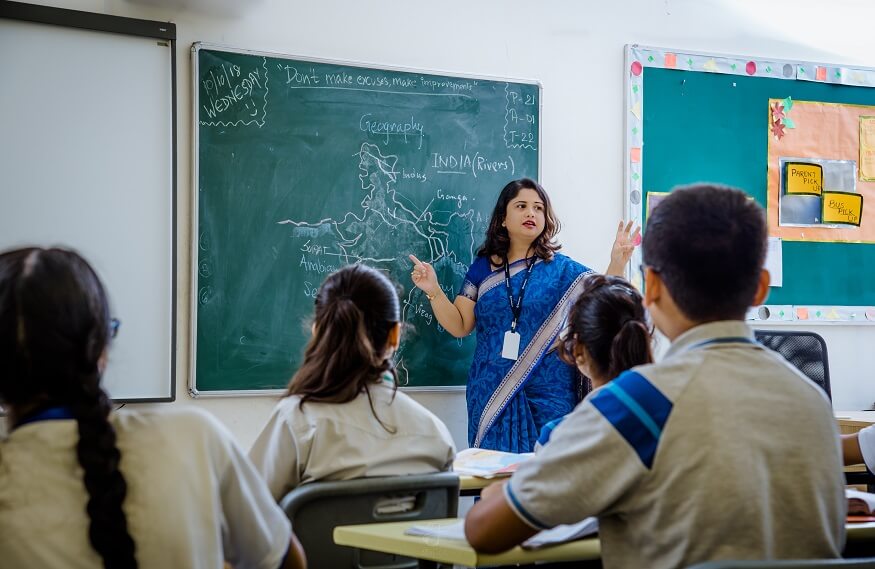CBSE Full Form
CBSE board full form: Central Board of Secondary Education
The Central Board of Secondary Education (CBSE) is one of the most widely recognized school boards in India and is the leading board of education for students across the country.
In this blog post, we will take a look at the history of the CBSE Board and explore the advantages that it offers.
The Central Board of Secondary Education (CBSE) is a national-level education board for public and private schools in India that operates under the Union Government of India. It was established in 1962 and is headquartered in New Delhi to provide a common education platform to all students in India.
The CBSE board offers a wide range of courses and subjects to its students. The board has a well-structured curriculum that focuses on the overall development of the students. The CBSE Board is also responsible for conducting various competitive exams, such as JEE, NEET, CTET, and UGC-NET.
The CBSE Board conducts the Class 10 and Class 12 board exams in the country and has seen tremendous growth from 29 affiliated schools in 1929 to over 24,000 affiliated schools across India and 27 foreign countries.
History of CBSE Board
The roots of the Central Board of Secondary Education lie in the colonial days of the early 20th century when the British decided to establish the first Indian school Board in 1921.
The impetus came in the form of a Sadler Commission (also known as the Calcutta University Commission 1917-19) report that led to the formation of various Boards of Secondary Education in different parts of the country.
It was in 1929 when the Government of India established the Board of High School and Intermediate Education, Rajputana, which later became the Central Board of Secondary Education in 1962. Before the establishment of the CBSE Board, each state in India had its education board, which made it difficult for students to move from one state to another. The CBSE Board was established to provide a uniform education system throughout the country.
In the early years, the CBSE Board used to conduct only the Class 10 board exams. However, in 1975, it started conducting the Class 12 board exams as well. Over the years, the board has undergone several changes in terms of curriculum and evaluation methods. In recent years, the board has made significant changes to its curriculum to keep up with the changing needs of the students and the industry. CBSE also offers various vocational and additional courses that can help students pursue their interests and hobbies with ease.
Today, the CBSE Board is recognized by many colleges and universities in India and abroad. Students who pass out of the CBSE Board are equipped with the necessary skills and knowledge to excel in their chosen field of study. The board has played a vital role in shaping the education system in India and continues to do so by offering quality education to students across the country.
Advantages of CBSE Board
The CBSE is a great board for educational opportunities due to the range of subject options that it offers. In addition to traditional subjects such as mathematics, science, and English, the CBSE board also offers non-traditional subjects such as creative writing and visual arts.
For the smooth execution of its functions, the Board has set up Regional Offices in different parts of the country to be more responsive to the affiliated CBSE schools. The Board has also set up Centres of Excellence to equip in-service teachers of the affiliated schools, with the latest updates and strategies through various Capacity Building Programmes.
There are several advantages of studying under the CBSE Board. Here are some of the key benefits:
- Standardized curriculum: There is a standardized CBSE curriculum that is followed by all its affiliated schools. This ensures that students get the same level of education, regardless of the CBSE school they are studying in.
- Focus on application-based learning: The CBSE curriculum focuses on application-based learning, which means that students are encouraged to apply what they learn to real-life situations. This helps in the overall development of the student. CBSE’s focus on experiential learning promotes self-thinking, creativity and innovation among students.
- Recognition: The CBSE Board is recognized by many colleges and universities in India and abroad. This makes it easier for students to get admission to higher education institutions.
- Competitive exams: The CBSE Board prepares students for various competitive exams such as JEE, NEET, and more. The board also conducts its competitive exams like CTET, UGC-NET, and others.
- Multilingual approach: The CBSE Board offers a multilingual approach to learning, which means that students can study in their preferred language. This helps in making education more accessible to students from diverse backgrounds.
- New age courses: The CBSE board, continues to bring in continuous reforms and growth initiatives. There is a push towards the formation of Hubs of Learning- for Collaboration among affiliated CBSE schools for self-improvement and quality enhancement. Following the New Education Policy (NEP) 2020 recommendations, Artificial Intelligence, Design Thinking, Data Science, Yoga and Early Childhood Care have been introduced as skill subjects in classes X and XII to enhance and empower the learning capacity of students.
- CBSE Counselling Programme: In 1998, CBSE became the only board to provide psychological counselling via multiple modes to Class X and XII students. From 2019, this facility is available on a toll-free number.
Comparison of CBSE Board with other boards in India
There are several other education boards in India, such as the CBSE Board, the State Boards, and the IB Board. Here’s how the CBSE Board compares with some of these boards:
CBSE Board
The CBSE Board is more focused on English and stresses project work and practical applications of concepts. The CBSE Board, on the other hand, has a more balanced approach and is recognized by more institutions.
State Boards
Each state in India has its education board. The state boards are more focused on the regional language and culture. The CBSE Board, on the other hand, offers a more standardized curriculum.
IB Board
The IB Board is an international education board that focuses on a global curriculum. It is more expensive than the CBSE Board.
Conclusion<
In conclusion, advantages of CBSE board are plenty. Being a learner-centric education board that provides a standardized education system to students across India, the board has a long and rich history and has undergone several changes over the years to keep up with the changing needs of the students and the industry.
Studying under the CBSE Board offers several advantages such as a standardized curriculum, focus on application-based learning, recognition, preparation for competitive exams, and a multilingual approach to learning.
While there are several other education boards in India, the CBSE Board is one of the most popular ones and is recognized by many institutions in India and abroad. Students who choose to study under the CBSE curriculum are equipped with the necessary skills and knowledge to excel in their chosen field of study.
At EuroSchool, we strive to make sure our students are well-equipped to face the challenges of the future. We have implemented the latest technology and teaching methods while keeping in line with the CBSE curriculum. Our dedicated faculty and staff have worked hard to provide our students with the best education. We are proud to be a part of the CBSE board and to provide our students with the best education.
When looking for schools in Bangalore, Mumbai, Pune, and Hyderabad, EuroSchool is a significant option for families wanting a valuable and internationally focused education. The learning journey in these cities aims to nurture a passion for learning and equip students with vital skills like adaptability, critical thinking, and a global perspective for their future.









